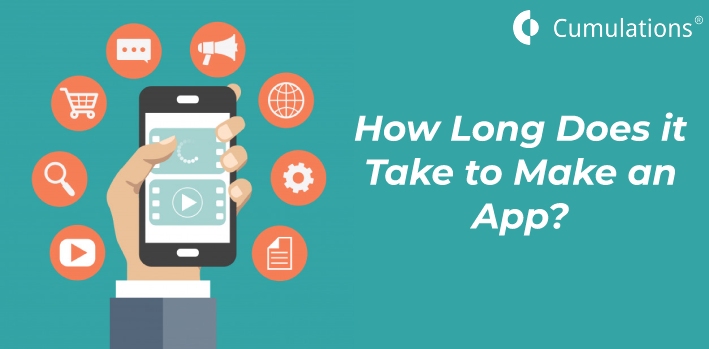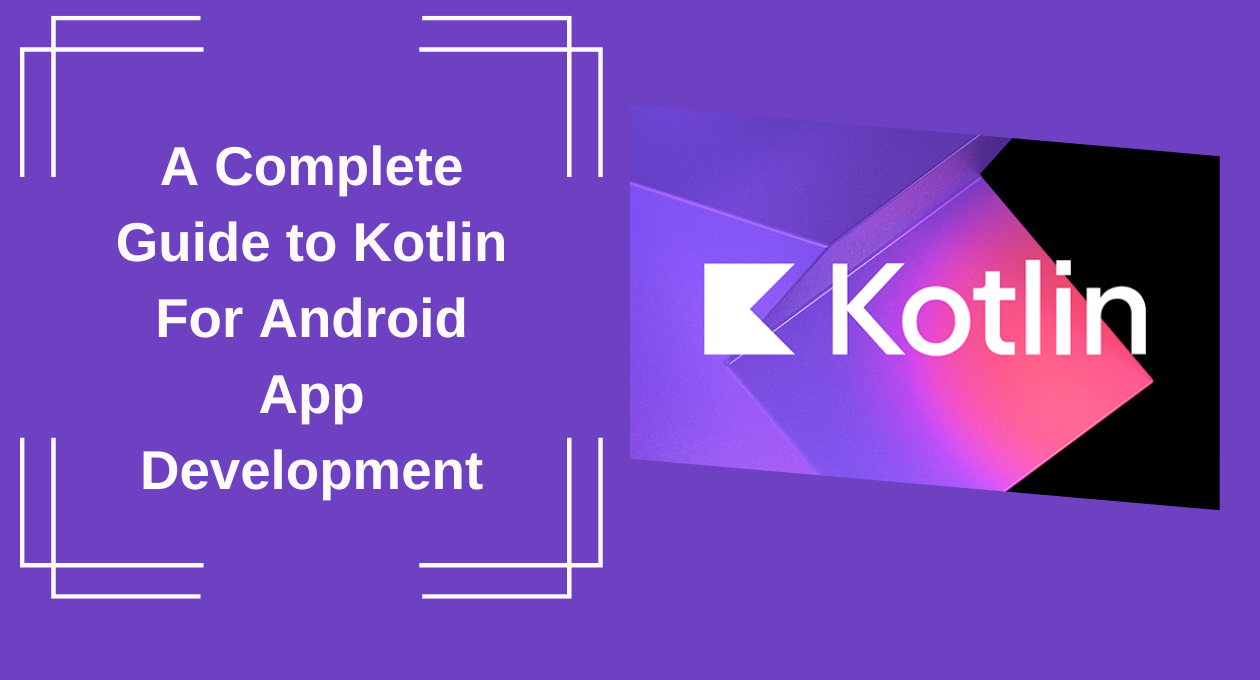
Mobile apps are anticipated to generate around 189 billion US dollars in revenue by the year 2020. Also, according to a projection, by 2021, the total number of app downloads will reach 352 billion.
How long does it take to make an app? I am sure this is something each one of you wants to know. Well, the answer is around 2-3 months. But of course, the answer isn’t that simple.
App development time largely depends upon the complexity and functions of the app. At Cumulations, we help to build a robust app with the shortest possible timeline without compromising on the quality and app performance.
Today, mobile apps are being developed and marketed at an exponentially high rate. There are over 5 billion apps available on both the Google’s Play Store and Apple’s App Store together, and the number is apparently growing.
This has made all the startup founders apprehend the rising importance of mobile apps and dive into the competition of developing their very own customized mobile solution. If you are one among them and are planning to build your mobile app, now is the time.
In today’s post, we will have a detailed look at the different stages of the production process and other factors that largely determine the time taken by the app to complete.
App Development Process
Most of the mobile app developers in bangalore nowadays opt for an agile software development approach for developing robust apps as it offers a myriad of benefits. Among the many advantages, the most prominent ones include adaptive planning, evolutionary development, ongoing improvement, timely delivery and a huge flexibility to incorporate changes.
This approach largely streamlines the process by eradicating all the unnecessary steps and leaves the developers with a few basic and important phases, such as:
1.Envisioning
This is the first stage of the development process that involves outlining the client’s objectives and detailed requirements for creating an adept solution. It involves conducting a series of discovery sessions with the client so as to have a comprehensive understanding of his vision and expectations. Thus, the strengths and weaknesses of the project are delineated.
The project team then delves into developing design concepts and app wireframes that display the app’s look and feel, finalizing its UI/UX, and other technical architecture.
Time take – 2 -4 weeks
2.Iterative Development and Testing
This phase involves the actual mobile app development and testing. The project team which comprises of market analysts, designers, developers and app testers that diligently work to build an initial version of the app that can be submitted for client review.
This kick-starts the iterative development stage where the smallest of bugs are fixed and iterations are made to develop a fully-functional operative model.
Time take – 8 -10 weeks
3.User Acceptance Testing (UAT)
This is the final development and testing stage that concentrates on stabilizing the mobile app and making all the final changes in accordance with the client’s feedback. The app is also tested by a group of in-house volunteers or paid testers that use the software and give their feedback.
A lot of times, a test version of the app is created and uploaded to the web for a free trial. The experience of the first set of users proves to be immensely fruitful and enables the developers to make the final changes before releasing it commercially.
Time take – 1 -2 weeks
4.App Release
After the app development is complete, its time for the deployment of the different app stores. The project team helps the client in releasing the app on the desired platform such as Google’s Play Store, Apple’s App Store, etc. This may take up to 3 weeks before the app is ready for download to the target audiences.
Time took – 2 -3 weeks
Other factors involved in the making of an App
Apart from the app development process, there are several other factors that significantly determine the time taken by an app to complete. Let’s have a look.
App’s Features and Functionalities
Of course one of the biggest factors that define the time taken to build an app is the number of features and functionalities incorporated into it. The more the features, the more time it will require designing, develop and test those features. However, I strongly recommend all startup founders to begin their mobile presence by developing an MVP, i.e.
Minimum Viable Product. An MVP limits the number of features offered to the users in the first version and focuses on incorporating the core functionality of the app. This has a lot of benefits including restricting the time and budget involved in development. Furthermore, you can introduce additional features through subsequent updates after you learn more about your target user’s needs and preferences.
Complexity to make an app
The complexity of the features that need to be incorporated into the app is another major determinant. Naturally, if the features are more complex, they will require more time and effort. For instance, if you have built an e-commerce app, then offering the users an option to look for their desired product using a text-based search is a regular feature.
However, if you provide an option where the users can search for a product using a photo, then, of course, it will take longer to build but will surely proffer a better user experience.
Number of App Users
The number of users that will be using your app at one time has a huge impact on the time involved in development. For example, if you are building an app that is competent of handling 1,000 users simultaneously, then there are fewer factors involved and the app will take less amount of time to complete.
However, if the app has to deal with 10,000 to 50,000 users simultaneously, then you need to build robust app architecture with a lot of investment in performance testing and tuning. This will call for a longer app completion timeline.
Determining the Platform
In order to increase the user base, most of the business enterprises opt for all platforms, such as Android, iOS and also the web. Even though building an app for all platforms all at once augments efficiency, there are a few activities that are unique to each platform, including the design, development and app testing. This increases the amount of time and effort involved in building an app as there are several activities taking place simultaneously.
Final Thoughts
The afore-mentioned discussion has helped us in outlining a final timeframe involved in building an app – 4 to 5 months. Thus, developing an app is a rather lengthy and taxing process, which calls for a lot of preplanning, patience, and determination to execute it well.
Here are two important pieces of advice from our end to help you in your app development journey.
Be ready to face delays and try to stay a little flexible in your timeline
Sometimes unanticipated situations arise such as delay in third-party integrations, launching of new IOS guidelines, too many bugs during the testing stage, etc. that may cause a lot of delay in app completion. Therefore, it is always better to keep some buffer rather than a strict deadline.
Make sure to stay in touch with your mobile app development team post-release
Developing a mobile app is not a one-time task. It calls for continuous improvements and timely updates to offer optimal value to the users. So, make sure you have a continued access to the mobile app development team through an authentic services agreement even after the app is launched.
Related read: 5 Ways to get Funded for your Mobile App Ideas


 +91-984-5825982 | +91-996-4689921
+91-984-5825982 | +91-996-4689921 sales@cumulations.com
sales@cumulations.com Send your requirement
Send your requirement 



